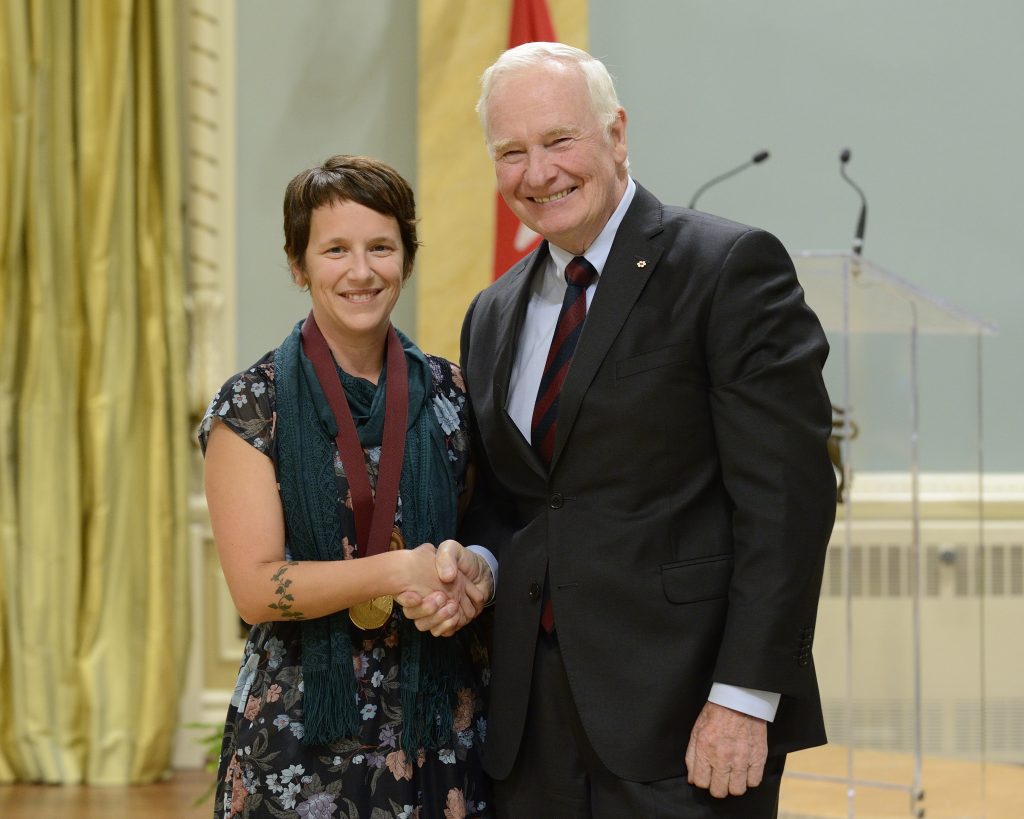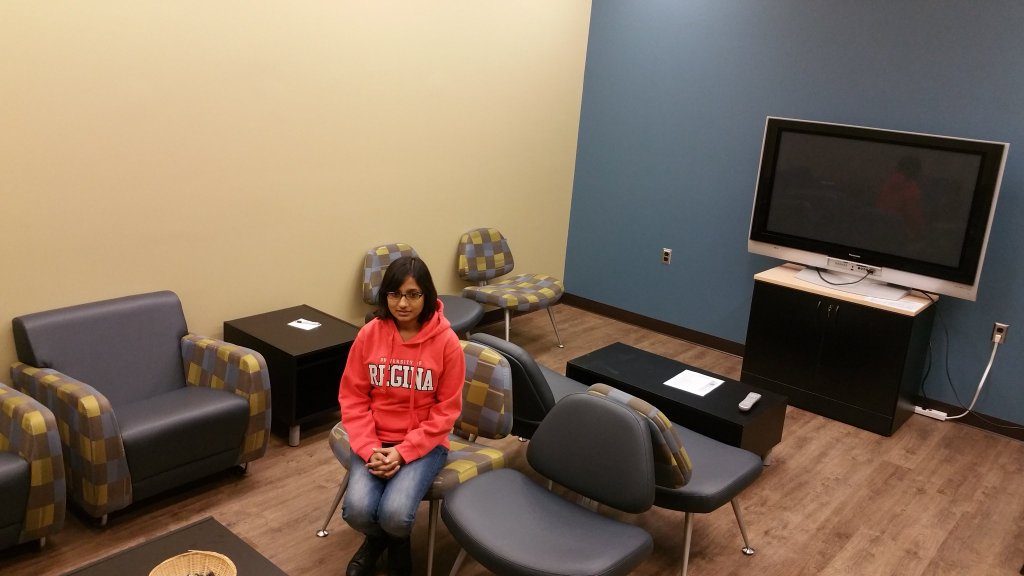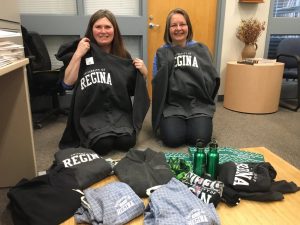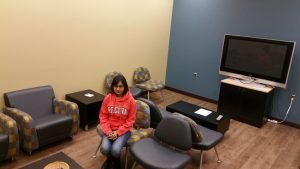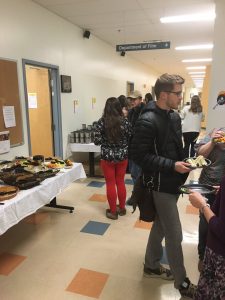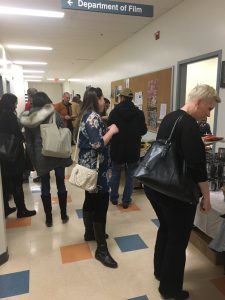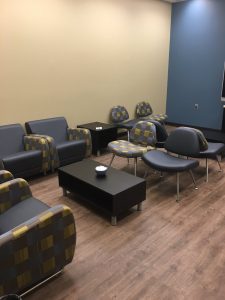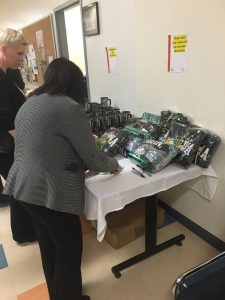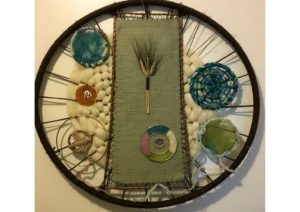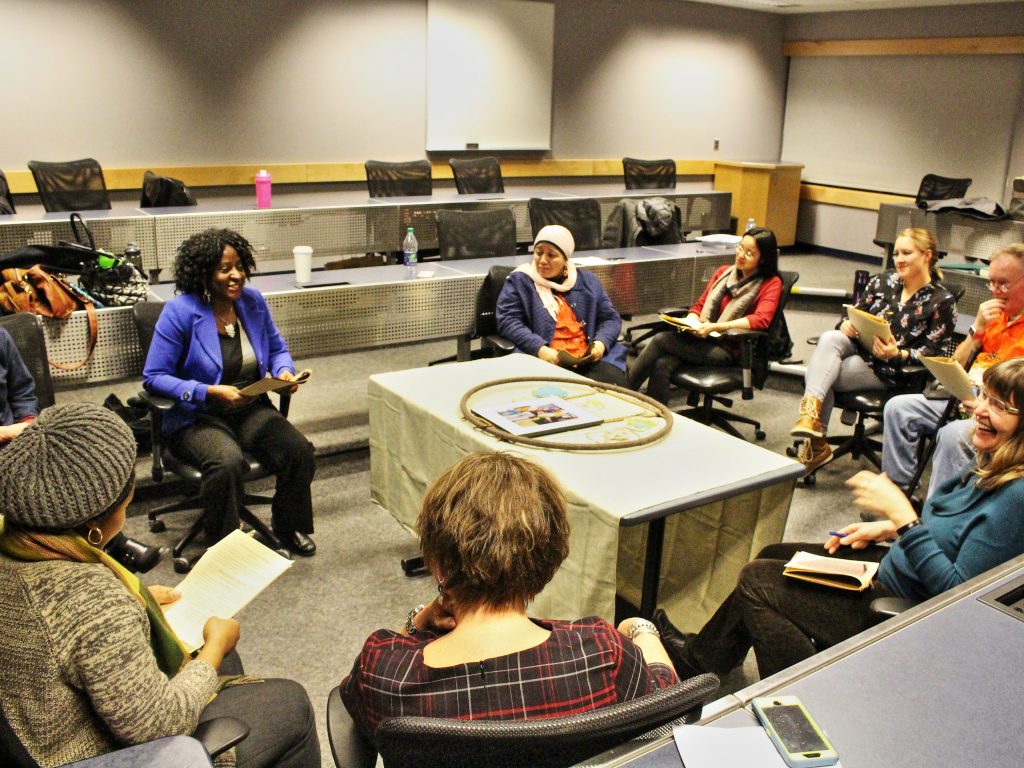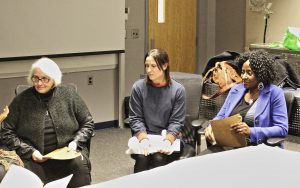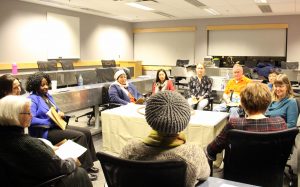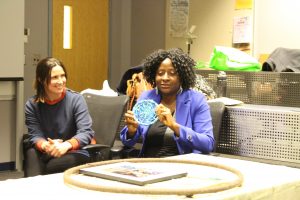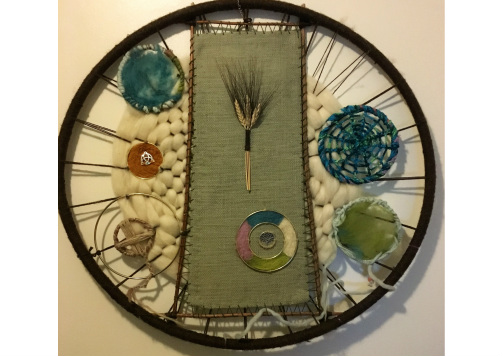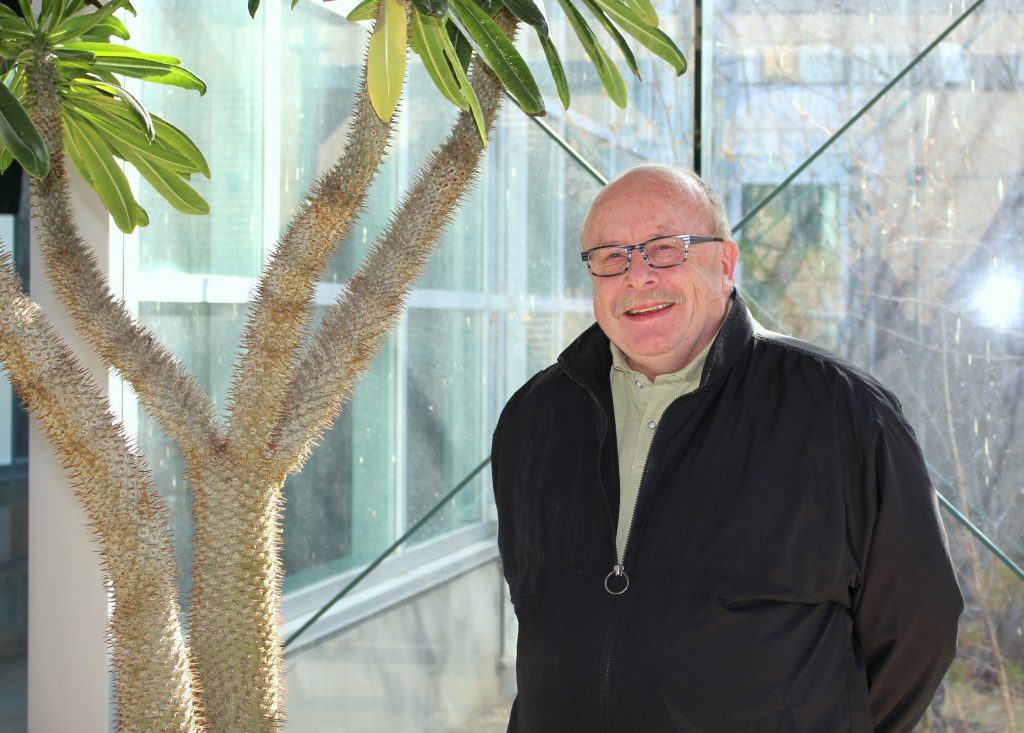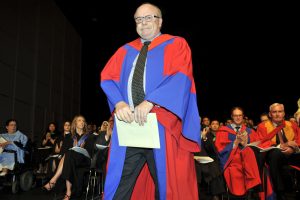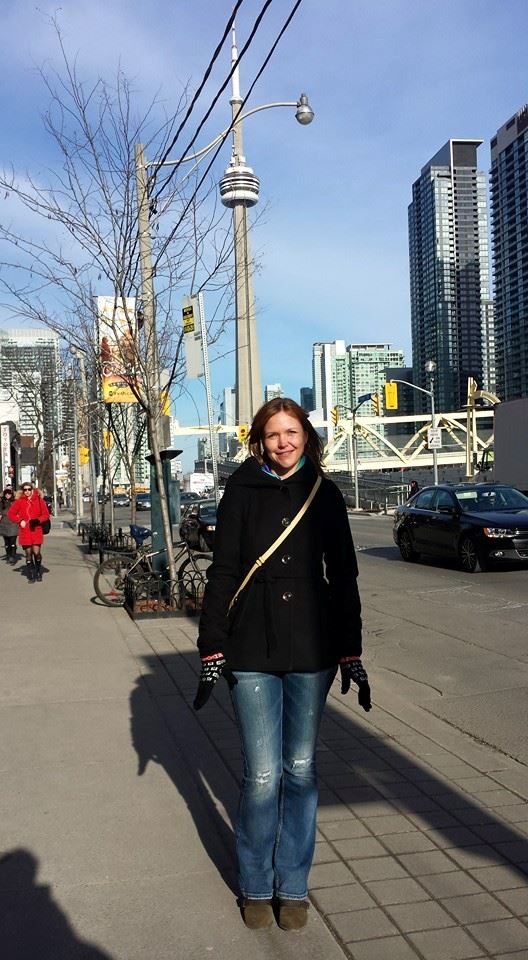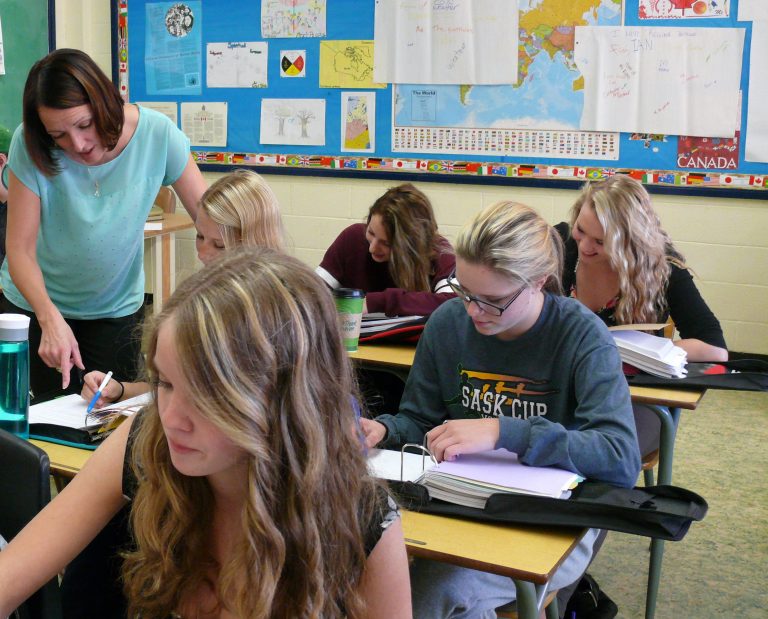In October 2015, Kim Sadowsky, a teacher at Thom Collegiate and a Master’s of Education (Curriculum & Instruction) student in the Faculty of Education, University of Regina, was announced one of six winners of the 2015 Governor General’s History Award for Excellence in Teaching.
Recipients of this award are celebrated for their achievements in teaching Canadian history. Kim’s success is due to the design of her Native Studies class, which explores the question, “Who is a Treaty Person?” The class re-enacts Canadian history throughout the semester in a simulation.
The following is Kim’s description of the course:
“In Native Studies 10/30, students embark on a Treaty simulation that lasts the entire semester and takes them through an intricate role-play where students become the Indigenous peoples of Treaty #4 territory in what is now Saskatchewan. It is a living simulation where each day the students are playing out key events in Canada’s history and drawing their own conclusions about how the events of the past have influenced their place in Canada today as Treaty people. Their course goal is to create an inquiry-based or social-action project that demonstrates their knowledge of Canada’s Treaty relationships and encourages others to acknowledge that ‘We Are All Treaty People’ and as such have a responsibility in understanding and acknowledging our shared history of this land.
The semester begins with one simple question: “Who is a Treaty person?” From this question, our entire course unravels as students relive Canadian history from both an Indigenous and non-Indigenous perspective. The goal of the course is for students to begin to act on their understanding that being a Treaty person carries a massive responsibility in working towards decolonizing and reconciling Treaty relationships.
Students and even the teacher play the role of either the Indigenous peoples or the Government of Canada as they take part in the simulation. They begin with Treaty negotiations as the classroom is transformed into a historical time warp. Eventually, students are assigned reserves (certain areas of the classroom) in which they are to live. The Residential school, offices of the Indian Agents, and the Prime Ministers headquarters are also assigned locations in the classroom.
Throughout the semester, students experience day-to-day scenarios in which history is played out: Everything from the Indian Act, to attending residential school or being forced to leave their reserve because of Enfranchisement is re-enacted. Later in the semester, they visit ideas of revitalization and resource development on reserve, truth and reconciliation, and current events from society and politics.
Nearing the end of the course when the residential school is closed, students discuss the contemporary effects of inter-generational traumas and current social issues that have resulted from Canadian history. They explore their own family roots and stories, acknowledging their identities within this history. Students piece together how the past has impacted their understanding of the present, and as a result, they create hopeful healing and possibilities for the future. They acknowledge and celebrate the success and contributions of Canada’s Indigenous peoples to the building of Canada and society today.
During the simulation students gain knowledge and empathy as they navigate thru Canadian history and critically develop the skills to investigate the perspectives of various decisions that were made by the Canadian government and Indigenous people.
As much as possible, the content of the course is delivered in the oral tradition to honour Indigenous ways of knowing. Primary sources are used as much as possible if there are to be written documents. The students have access to elders, residential school survivors, local authors, politicians, and familial stories to really make this history live.
Students are connecting with material that makes it real and meaningful. It is one thing to learn about decolonizing from books… it is quite another thing to live it. That is what the simulation attempts to do.
The students’ final project is to create and show an exhibition of their learning. The outcome is to demonstrate their understanding of how Treaty relationships throughout Canadian history have shaped Canada today as well as acknowledge their roles as Treaty people. Whether class project or an individual work of art, writing, dance, or music, the results have been extraordinary. Not only have the students displayed internalization of knowledge, but also, as an educator, I have learned so much about Canadian history as a result of this simulation. The students have humbled me with their ability to become so completely passionate about history, moving learning far beyond the walls of the classroom!”
Kim graduated from the U of R, with a B.Ed. degree in 2001, with a major in Social Studies, and minor in Physical Education. In the program at that time, Kim says her experience was that, “the conversation around the impacts of colonization and Treaty relationships were totally absent.” She views this absence as reflecting a “systemic amnesia” that has existed in our society in regards to our shared history and the overall resistance to learning about it. What she is now learning about Indigenous history, along with her students, allows her, “to see that there were complete chapters in our shared history that had been left out.” Thus, when a colleague, David Benjoe, who was leaving Thom after paving the way for the Native Studies course, said to Kim, “You need to teach this course,” Kim felt unqualified. She says, “I was terrified. I knew nothing about Native Studies…and I was not Indigenous.” However, with David’s encouragement to “just be honest, respectful, kind and funny,” Kim agreed to teach the course.
With guidance from David and others, Kim found that being non-Indigenous opened up spaces for learning where students were the knowledge keepers in the classroom, not her. This allowed for opportunities to connect with families and community, moving learning beyond the classroom walls. In fact, she has since understood how important her role as a non-Indigenous person is in decolonizing her classroom through these learnings.
“To have been teaching for 15 years and to only now connect the dots of colonization, especially as a Social Studies/History teacher…It is shameful,” says Kim. This regret has been the driving force behind her course and how she teaches it.
Kim is passionate about “addressing the gaps that exist within our system when it comes to education and whose history is being taught and whose is being left out,” because she believes it “is integral when moving forward.”
As a M.Ed. student “surrounded by some pretty phenomenal professors at both the First Nations University and the University of Regina,” Kim is able to see that the Faculty of Education is also moving forward and addressing the gaps. She says, “The education program has changed a lot since I went through it. The U of R today is a different place and is engaging in authentic learning opportunities for future educators in a deeper understanding of the impacts of colonization and Treaty relationships and how this impacts the way we teach. The need to decolonize is now prevalent in the Education Faculty and gives much hope.”
Kim recognizes the importance and central role education has in the process of reconciliation and the hope of rebuilding the relationships between Indigenous and non-Indigenous peoples. “We must realize that education had a key role in creating a legacy of hurt, pain, fear, racism, and so on, and as educators we have a massive responsibility in contributing to the healing process through education,” she says.
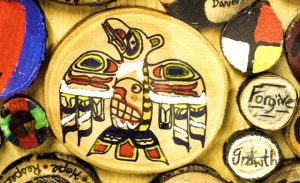
Unlearning colonized history and decolonizing relationships involves not only the content that is taught but also how the content is taught. Kim says, “I cannot stress enough, the importance of teaching Indigenous and non-Indigenous people from an Indigenous perspective. Many of these stories, events and accounts of Canadian history have been completely left out. By digging deeper and challenging uncomfortable learning students are able to recognize circumstances, events and key moments in Canadian history where we have struggled together as Treaty people.”
Kim’s passion has ignited the interest of others at Thom Collegiate. This fall, over 25 classes from a variety of subject areas took part in the “Building Our Home Fire” project, which explored the legacy of the residential school system. Participating students and teachers found it to be “an incredible experience.”
